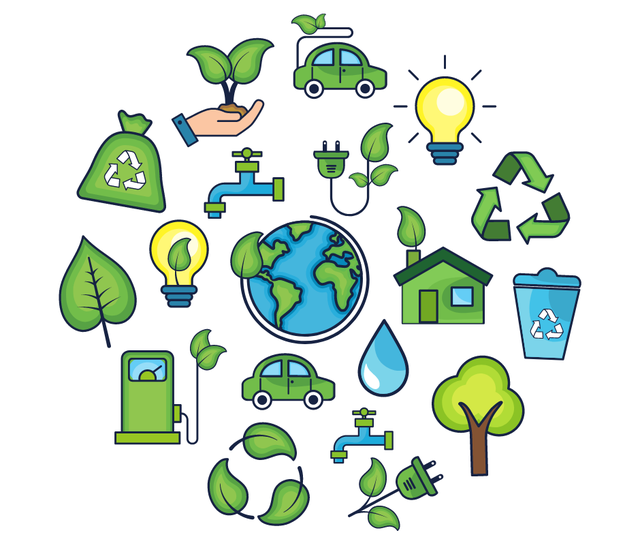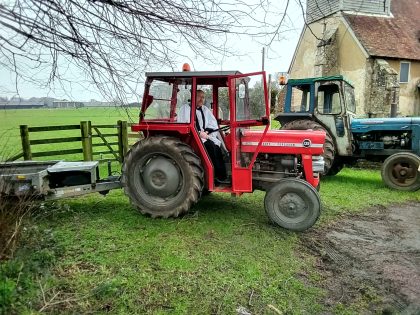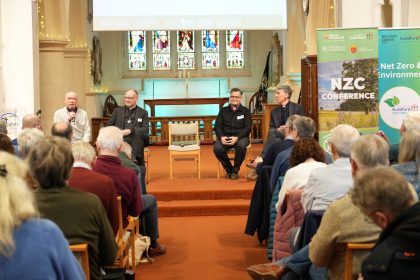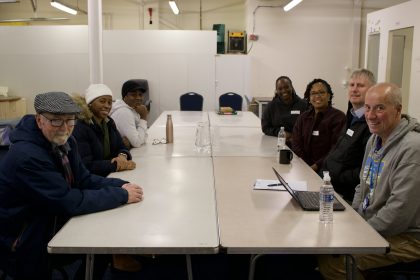On World Environment Day, Saturday 5th June, The Diocese of Winchester will launch its Net Zero Strategy with a target of reaching Net Zero emissions by 2030. The commitment is in line with the Church of England’s national target of net zero carbon emissions by 2030, set at General Synod in 2020.
The Diocesan strategy sets sustainability targets for churches, schools, clergy housing and diocesan offices including the off-setting of carbon, installing electric vehicle charging points, using low-carbon heating systems, and optimising energy efficiency of buildings. One of the key goals is for 90% of parishes to have switched to a green energy supplier by December 2021.
The paper outlines six key commitments of the Diocese to:
- take the environmental impact and use of resources fully into account in all areas of work,
- embrace more and more a spirit of Christian joy and fullness of life,
- strive to adapt individual lives to be fully sustainable,
- seek to increase awareness and understanding of environmental issues in local communities,
- accept a wider responsibility towards young people and minority groups,
- recognise that efforts committed will have to be sustained for successors and promote generational change
The Bishop of Southampton, Debbie Sellin, said:
“As Christians we are called to practice sacrificial living and be good stewards of all that God has entrusted to us. We have a mutual responsibility to our friends across the Anglican Communion in our Companion Link Provinces, who live most immediately with the current impact and injustices of climate change.
“I look forward to seeing how churches and Christians across the Winchester Diocese commit to more sustainable patterns of living and worshipping, and witness to their local communities by serving the common good and living the mission of Jesus.”
The Archdeacon of Winchester, Richard Brand, Environment lead in the Diocese, said:
“We are committed in supporting the national Church’s target to reach net zero emissions by 2030 and help tackle the rising issues of climate change.
“Our Net Zero strategy affirms the Fifth Mark of Mission, to strive to safeguard the integrity of God’s creation and sustain and renew the life of the earth, as central a foundational task for each and all of us as Christians.”
The Chair of the Diocesan Environment Group, David Morgan, commented:
“Climate Change is one of the biggest challenges facing the world. We each have a crucial role to play in addressing the causes to ensure that we give future generations the best opportunities. I’m hopeful that by implementing the new strategy, with year-on-year carbon emission reductions, that we can be mutually accountable in working together to create a real reduction in damage to the environment in our region.”
Churches across the Diocese of Winchester are part of the A Rocha Eco Church scheme which awards churches Bronze, Silver and Gold level ratings based on their environmental and ethical stewardship. The Diocese also holds the Bronze Eco Diocese status and is working towards the Silver award. 50% of churches in the Diocese have already signed up the Eco Church scheme but the target is for 75% of parishes to achieve the Bronze award by 2025.
Ahead of the UN COP26 in November, churches in the Diocese of Winchester will be hosting Climate Sunday services focusing on the importance of local climate change action and how and why the church has a key part to play.





